Related Research Articles

A carcinogen is any substance, radionuclide, or radiation that promotes carcinogenesis. This may be due to the ability to damage the genome or to the disruption of cellular metabolic processes. Several radioactive substances are considered carcinogens, but their carcinogenic activity is attributed to the radiation, for example gamma rays and alpha particles, which they emit. Common examples of non-radioactive carcinogens are inhaled asbestos, certain dioxins, and tobacco smoke. Although the public generally associates carcinogenicity with synthetic chemicals, it is equally likely to arise from both natural and synthetic substances. Carcinogens are not necessarily immediately toxic; thus, their effect can be insidious.

Biochemists are scientists who are trained in biochemistry. They study chemical processes and chemical transformations in living organisms. Biochemists study DNA, proteins and cell parts. The word "biochemist" is a portmanteau of "biological chemist."
Genotoxicity is the property of chemical agents that damage the genetic information within a cell causing mutations, which may lead to cancer. While genotoxicity is often confused with mutagenicity, all mutagens are genotoxic, but some genotoxic substances are not mutagenic. The alteration can have direct or indirect effects on the DNA: the induction of mutations, mistimed event activation, and direct DNA damage leading to mutations. The permanent, heritable changes can affect either somatic cells of the organism or germ cells to be passed on to future generations. Cells prevent expression of the genotoxic mutation by either DNA repair or apoptosis; however, the damage may not always be fixed leading to mutagenesis.
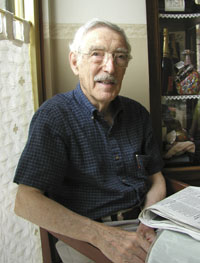
Bruce Nathan Ames is an American biochemist. He is a professor of Biochemistry and Molecular Biology Emeritus at the University of California, Berkeley, and was a senior scientist at Children's Hospital Oakland Research Institute (CHORI). He is the inventor of the Ames test, a system for easily and cheaply testing the mutagenicity of compounds.

Ruth Sager was an American geneticist. Sager enjoyed two scientific careers. Her first was in the 1950s and 1960s when she pioneered the field of cytoplasmic genetics by discovering transmission of genetic traits through chloroplast DNA, the first known example of genetics not involving the cell nucleus. The academic community did not acknowledge the significance of her contribution until after the second wave of feminism in the 1970s. Her second career began in the early 1970s and was in cancer genetics; she proposed and investigated the roles of tumor suppressor genes.
Suzanne Cory is an Australian molecular biologist. She has worked on the genetics of the immune system and cancer and has lobbied her country to invest in science. She is married to fellow scientist Jerry Adams, also a WEHI scientist, whom she met while studying for her PhD at the University of Cambridge, England.

The McArdle Laboratory for Cancer Research is a basic cancer research facility located on the University of Wisconsin–Madison campus in Madison, Wisconsin. It houses the university's Department of Oncology. The staff of the McArdle Laboratory numbers approximately 200. Twenty-eight faculty members lead research groups focused on various fields such as cancer virology, signal transduction, cell cycle, cancer genetics, and carcinogenesis.
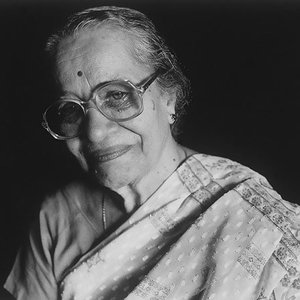
Kamal Jayasing Ranadive was an Indian biomedical researcher known for her research on the links between cancers and viruses. She was a founding member of the Indian Women Scientists' Association (IWSA).

Frédéric Yves Bois is a French biological scientist working in toxicology and bioinformatics. He is currently Senior Scientific Advisor at Simcyp, a Certara-owned company.

Harry V. Gelboin (1929–2010) was an American cancer research scientist, particularly in chemical carcinogenesis. From 1966 to 1999, he was Chief of the Laboratory of Molecular Carcinogenics at the National Cancer Institute (NCI), part of the National Institutes of Health (NIH). His research focused on the activation and detoxification of drugs and carcinogens. He is best known for his studies of the genetic mechanisms by which normal cells transform into malignancy, which constituted a major advance in cancer research.
Penelope "Penny" Jeggo is a noted British molecular biologist, best known for her work in understanding damage to DNA. She is also known for her work with DNA gene mutations. Her interest in DNA damage has inspired her to research radiation biology and radiation therapy and how radiation affects DNA. Jeggo has more than 170 publications that pertain to DNA damage, radiation, and cancer research and has received 3 top science awards/medals for her research. Jeggo has also been a member of several organizations that pertain to radiation biology; these organizations include Committee on Medical Aspects of Radiation in the Environment (COMARE), National Institute for Radiation Science laboratory researcher, and the Multidisciplinary European Low Dose Initiative (MELODI). Jeggo is a member of these organizations, and she is also an editor for several publication journals that are related to cancer and radiation biology. Jeggo is very passionate about her research and in an interview with Fiona Watt claimed that “Although my results contributed only the tiniest smidgeon to scientific knowledge, I gained immense satisfaction from it”.
Paramjit Khurana is an Indian scientist in Plant Biotechnology, Molecular Biology, Genomics who is presently Professor in the Department of Plant Molecular Biology in the University of Delhi, Delhi. She has received many awards and published more than 125 scientific papers.

Katherine Koontz Sanford, also known as Katherine Sanford Mifflin, was an American biologist and cancer researcher who worked at the National Cancer Institute for nearly 50 years, serving as head of Laboratory of Cellular and Molecular Biology. In the 1940s she became the first person to successfully clone a mammalian cell in vitro, which allowed for more efficient means of creating pure strains of cells for study. She also developed the first laboratory test to distinguish people with Alzheimer's disease and people predisposed to cancer.
Elizabeth Amy Kreiser Weisburger was an American chemist who made significant contributions in medicine and chemistry, specifically chemical carcinogenesis. She worked for nearly 40 years at the National Cancer Institute and received multiple awards for her work. Weisburger's research in chemical carcinogenesis was necessary in order to find treatments for cancer. Some of Weisburger's work included studying carcinogenesis, looking at the activity of carcinogens, and determining the dangers of chemotherapy drugs. Elizabeth Weisburger is considered a pioneer in chemical carcinogenesis.

Curtis. C. Harris is the head of the Molecular Genetics and Carcinogenesis Section and chief of the Laboratory of Human Carcinogenesis at the Center for Cancer Research of the National Cancer Institute, NIH.
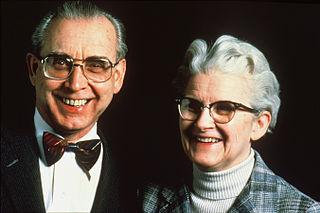
Elizabeth Cavert Miller was an American biochemist, known for fundamental research into the chemical mechanism of cancer carcinogenesis, working closely with her husband James A. Miller.
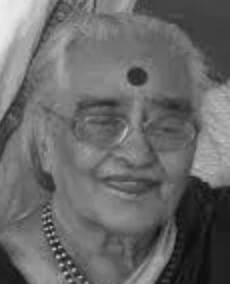
Satyavati Motiram Sirsat was an Indian cancer researcher.

Clara Y. Lim-Sylianco was a Filipino chemist who was granted the title of National Scientist of the Philippines in 1994. Lim-Sylianco's research focused on mutagens, antimutagens, and bio-organic mechanisms. She has published articles, books, and monographs in organic chemistry, biochemistry, genetic toxicology, and molecular nutrition. Also an educator, Lim-Sylianco has written books that are used as reference texts in college chemistry courses in the Philippines.
Diana Anderson is a British biomedical scientist who is a professor at the University of Bradford. Her research has focussed on early cancer detection and genome stability. She was appointed an Order of the British Empire in 2022 for her services to cancer detection.
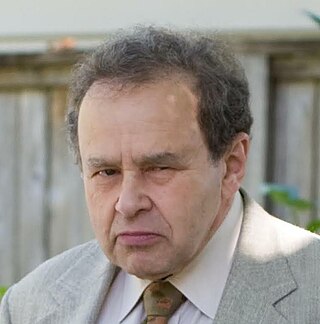
Lawrence A. "Larry" Loeb is an American cancer researcher and genome scientist. He is a professor of pathology and biochemistry at the University of Washington. Loeb is best known for his work on the fidelity of DNA polymerase, and his proposal of the mutator phenotype hypothesis in cancers.
References
- 1 2 3 "IAS- Rajani A Bhisey" . Retrieved 16 March 2014.
- 1 2 3 "INSA - Rajani A Bhisey". Archived from the original on 16 March 2014. Retrieved 16 March 2014.
- ↑ "55-58.pdf" (PDF). Retrieved 8 April 2014.